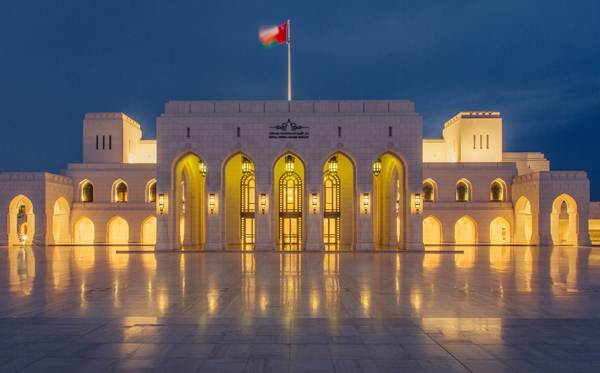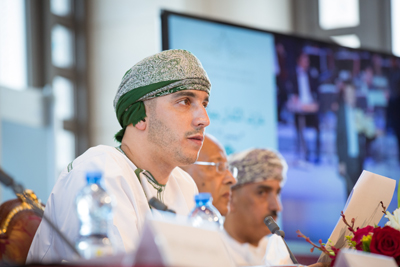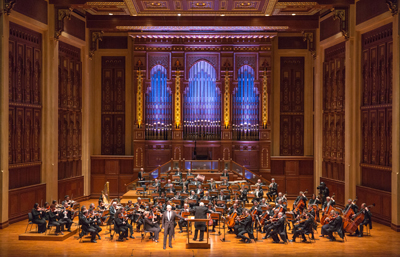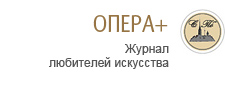Vera Stepanovskaya
Royal Opera House Muscat: HH Kamil al Said interview

Photo© ROHM
Opera+”: The ROHM is true miracle in the middle of the Arabian world. What does ROHM mean to the cultural life of Oman?
HH Kamil al Said: I believe we can see the “miracle of the Royal Opera House Muscat’ in a greater context – through the miraculous Renaissance of His Majesty Sultan Qaboos bin Said, who has transformed Oman into a modern nation while preserving its traditional culture.
In creating the Royal Opera House Muscat, His Majesty had the vision offostering world peace and harmony with intercultural exchange on a global scale – through the performing arts as a common language of humanity.
His Majesty also wished to enrich the people of Oman both spiritually and intellectually through exposure to the varied performing arts of other countries, and to give His people increased pride in the achievements of Oman, particularly pride in their long and distinguished history of music, dance and song, including the Royal Oman Symphony Orchestra and the Royal Military Bands - and to encourage Omani musicians to further their creative progress in these arts.
The Royal Opera House Muscat has transformed the cultural life of the residents of Oman by bringing the performing arts literally to their doorstep, thus opening a wide window to the world. Many Omanis have learned, and are learning, the technical and administrative skills involved in operating an Opera House, and many more are responding to the inspiration the performances provide in terms of future career possibilities in the performing arts. Seeing Omanis perform at the Royal Opera House Muscat, whether on Omani Women’s Day, or with the Royal Oman Symphony Orchestra or the Military Bands – or as extras, and most wonderfully in the new in-house productions that are coming on stream – gives Omanis both increased motivation and a strong sense of increased pride in their heritage and culture.
How do opera and classical music correspond with the traditional culture and values of Oman?
Perhaps the first thing to note is that classical music, both civic and military, has been played by nationals in Oman for the past few decades with the Royal Oman Symphony Orchestra and the Royal Military Bands of Oman - in a further evolution of the music traditions of Oman and as a new development that has become part of Oman’s contemporary heritage in music.
It is important to recognize that the roots of both Oman’s present-day military bands and the Royal Oman Symphony Orchestra are in the age-old musicality, music skills and practices of Omanis.

His Highness Kamil al Said during press-conference
Photo ROHM
European opera is not as foreign to Arab culture as might be imagined from the perspective of the outside world. In fact, a form of theatrical singing in costume very similar to European opera was practiced in the Moorish era of the eighth century. The song and dance traditions of Oman include performance on stage in costume with singing to live instrumental music.
In short, both the values and practices of European opera and classicalmusic are consistent with the traditional performance arts of Oman.
How does HH see is the main purpose of the ROHM in that part of the world?
We must return to the enlightened vision of His Majesty Sultan Qaboos bin Said which is to promote intercultural understanding and foster world harmony and peace.
The specific aims of His Majesty are expressed in the mission of the Royal Opera House Muscat, a mission which pertains not only to the region, but also beyond the region.
The Royal Opera House Muscat Mission proclaims in brief: The multidisciplinary work of the Royal Opera House Muscat showcases rich and diverse artistic creations from Oman, the region, and the world; provides a space for culture and socioeconomic development, reflections and actions; inspires audiences and nurtures creativity with innovative programs; fosters cultural vitality and unleashes talent; promotes cultural tourism; and puts cultural diplomacy into practice by reinvigorating global and multi-disciplinary collaboration and exchange.
ROHM presents not only opera but also orchestral concerts, ballet – and even jazz is present on its stage. What is the balance among them? What does your public like most?
Both balance and diversity are key considerations in the Royal Opera House Muscat seasonal program selection which includes a broad range of genres – opera, concerts, ballet, dance, jazz, musicals, world shows and special events for families and children.
It is important to note that in our seasonal program selection process, we pay special attention to Omani and Arab music and shows. Normally six full-scale operas are performed each Season, along with at least two ballets, several concerts from around the world, a musical, two jazz performances and least one world show.
Generally speaking, opera is the most subscribed, followed closely by ballet. Jazz is also exceptionally popular, as are musicals.
The complete answer to the question of “what the public likes best” depends naturally on to which sectors of the population we are referring. For instance, Omani and Arab programs are tremendously popular with the Omani and Arab segment, and classical concerts are popular with the Western segment. However, given our observation throughout the seasons, we can definitely confirm that we have observed an increase in the Omani audience across all Arab and non-Arab events. Moreover, there has been an increase in the attendance of expats in Arabic events and hence we are very proud that our audience curiosity has expanded into new genres of music.
I am pleased to say that all genres are well subscribed and many are sold out – and that this is increasingly the case as we respond to audience feedback. Our average subscription rate is currently around 80% of capacity.
There are many famous guest artists and opera companies performing in ROHM, bringing their own productions. Are there any plans to develop music life in Oman further?
I am pleased to say that the answer is a resounding yes!
The Royal Opera House Muscat is venturing into in-house productions – with two wonderful new shows in the 2016-17 Season:
The Opera! – An imaginative time-travelling trip through the history of Opera through the famous myth of Orpheus and Eurydice.
Celebrating Oman – An exciting and simply fabulous tribute to the Renaissance of His Majesty Sultan Qaboos bin Said, featuring one of the best traditions of Oman... storytelling!

Dmitri Hvorostovsky in Muskat.
Photo ROHM
Russian artists have performed at the ROHM. This includes, for instance, the Mariinsky Theater and the mezzo-soprano Olga Borodina. Have you further plans for cultural cooperation between our two countries?
I am pleased to say that yes we do.
Russia is a country with a distinguished history in the performing arts, especially with respect to orchestral music and ballet - and our fruitful cultural collaboration is continuing.
We have featured Russian composers, musicians, singers and ballet dancers, with Russian representation in all of the past five seasons – and usually in more than one performance per season.
In addition to the previous performances for the coming 2016 - 2017 season we have programmed:
• a renowned Russian opera (Eugene Onegin by Tchaikovsky)
• Anna Netrebko: the best Russian soprano in the world
• A concert with The Alexandrov Red Army Chorus


